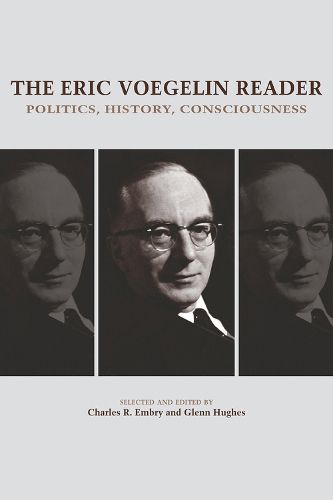Readings Newsletter
Become a Readings Member to make your shopping experience even easier.
Sign in or sign up for free!
You’re not far away from qualifying for FREE standard shipping within Australia
You’ve qualified for FREE standard shipping within Australia
The cart is loading…






Eric Voegelin (1901-1985) was one of the most original philosophers of our time, working throughout his life to account for the endemic political violence of the twentieth century, in an effort variously referred to as a philosophy of politics, history, or consciousness. Drawing from the University of Missouri Press's thirty-four-volume edition of his collected works, Charles Embry and Glenn Hughes have assembled a selection of Voegelin's representative writings, satisfying the need for a single volume that can serve as a general introduction to his philosophy. The selection demonstrates the range and creativity of Voegelin's thought, including writings that show his thinking as it developed historically in his long search for order in human society.
The Eric Voegelin Reader will be welcomed by students of political philosophy, political science, philosophy of history, theology, and other fields, including those who are unfamiliar with Voegelin's difficult, but exciting and stimulating, thought. The editors have provided a short introduction and situate each selection in the context of Voegelin's overall work.
$9.00 standard shipping within Australia
FREE standard shipping within Australia for orders over $100.00
Express & International shipping calculated at checkout
Eric Voegelin (1901-1985) was one of the most original philosophers of our time, working throughout his life to account for the endemic political violence of the twentieth century, in an effort variously referred to as a philosophy of politics, history, or consciousness. Drawing from the University of Missouri Press's thirty-four-volume edition of his collected works, Charles Embry and Glenn Hughes have assembled a selection of Voegelin's representative writings, satisfying the need for a single volume that can serve as a general introduction to his philosophy. The selection demonstrates the range and creativity of Voegelin's thought, including writings that show his thinking as it developed historically in his long search for order in human society.
The Eric Voegelin Reader will be welcomed by students of political philosophy, political science, philosophy of history, theology, and other fields, including those who are unfamiliar with Voegelin's difficult, but exciting and stimulating, thought. The editors have provided a short introduction and situate each selection in the context of Voegelin's overall work.